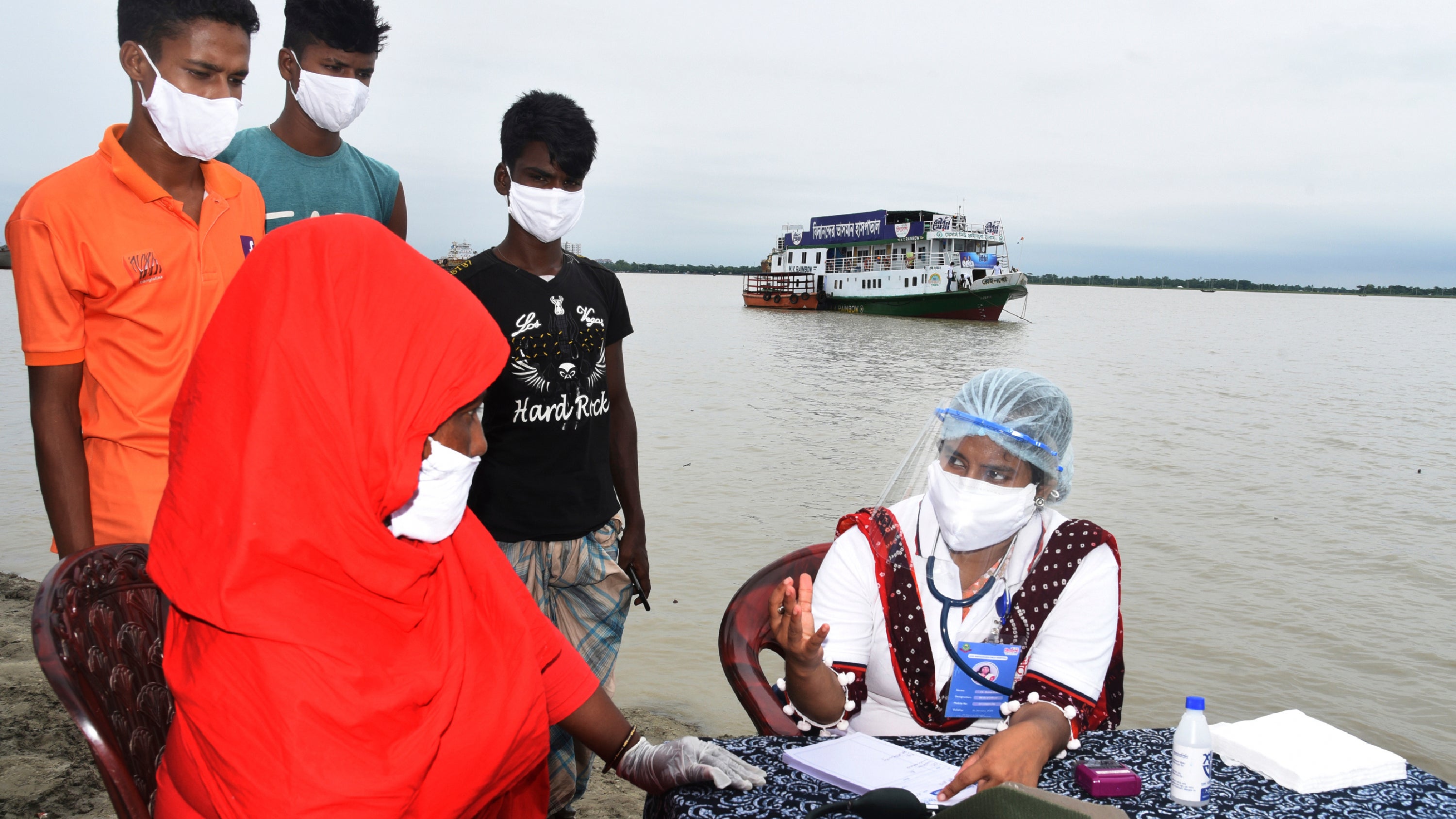Bangladeshi floating hospital treats flood-ravaged community
In late July, volunteers from a Bangladeshi charity started getting calls seeking support from people from the country’s vast coastal region that had been flooded for months during this year’s monsoon

Your support helps us to tell the story
From reproductive rights to climate change to Big Tech, The Independent is on the ground when the story is developing. Whether it's investigating the financials of Elon Musk's pro-Trump PAC or producing our latest documentary, 'The A Word', which shines a light on the American women fighting for reproductive rights, we know how important it is to parse out the facts from the messaging.
At such a critical moment in US history, we need reporters on the ground. Your donation allows us to keep sending journalists to speak to both sides of the story.
The Independent is trusted by Americans across the entire political spectrum. And unlike many other quality news outlets, we choose not to lock Americans out of our reporting and analysis with paywalls. We believe quality journalism should be available to everyone, paid for by those who can afford it.
Your support makes all the difference.In late July, volunteers from a Bangladeshi charity started getting calls seeking support from people from the country’s vast coastal region that had been flooded for months during this year’s monsoon.
As the floodwaters started receding, the Bidyanondo Foundation quickly decided to hire a tourist boat to provide basic health care for those seeking aid. The country’s coast guards came forward with a route plan for the boat that was eventually turned into a floating hospital called "Jibon Kheya,” or lifeboat.
Authorities reported thousands of cases of waterborne diseases including diarrhea and skin diseases, but getting to a hospital is a problem in the flooded southwestern region. The coronavirus pandemic came as a double blow, as fears grew that the virus could spread among people who temporarily crowded shelters away from their submerged homes.
“We wanted to go to them since it is always a big challenge to visit hospitals during any disasters. They have no cash, road networks are destroyed in many places. And for the women, children and elderly people this is an impossible task,” said Monjoor Morshed, the foundation’s head of strategic planning.
“We hired a tourist boat from near the Sundarbans to start the hospital,” Morshed said, referring to the world’s largest mangrove forest and a popular destination for travelers.
The Jibon Kheya started its journey on Sept. 1 with eight doctors and nurses. It has two dentists and one ophthalmologist and a dozen trained volunteers.
The first point was a decades-old brothel near a seaport. On the first day, more than 300 people, mostly sex workers and their children, received treatment and medicines free of charge, Morshed said. Those who suffered from severe illnesses were referred to a general hospital in a nearby town.
“The first day was a great experience for our team. Seeing the smiling faces of these destitute people, our team was very excited,” he said.
The floating hospital then headed farther south, and on the way it would stop at a few dozen pre-determined spots. Volunteers said it has already treated thousands. They also distributed masks to those visiting the vessel.
Often devastated by natural disasters including floods and cyclones, hundreds of thousands of people living along the coast lose their land, homes, health clinics and roads every year. This year, almost 37% of Bangladesh was underwater for nearly three months, marooning about 5 million people in a nation of 160 million. More than 100 people had died from flood-related causes.
“Climate change is a reality. Our people are suffering. So we wanted to create an example that we must stand by them. Jibon Kheya is for that,” Kishor Kumar Das, chairman of the Bidyanondo Foundation, told The Associated Press. “Jibon Kheya is just an example as we wanted to spread the message that we have to redesign our development concepts to reach out to the people devastated by the impacts of climate change.”
Das said they were exploring options to build their own permanent hospital ship.
“I hope our dreams will come true soon,” he said.
___
“One Good Thing” is a series that highlights individuals whose actions provide glimmers of joy in hard times — stories of people who find a way to make a difference, no matter how small. Read the collection of stories at https://apnews.com/hub/one-good-thing